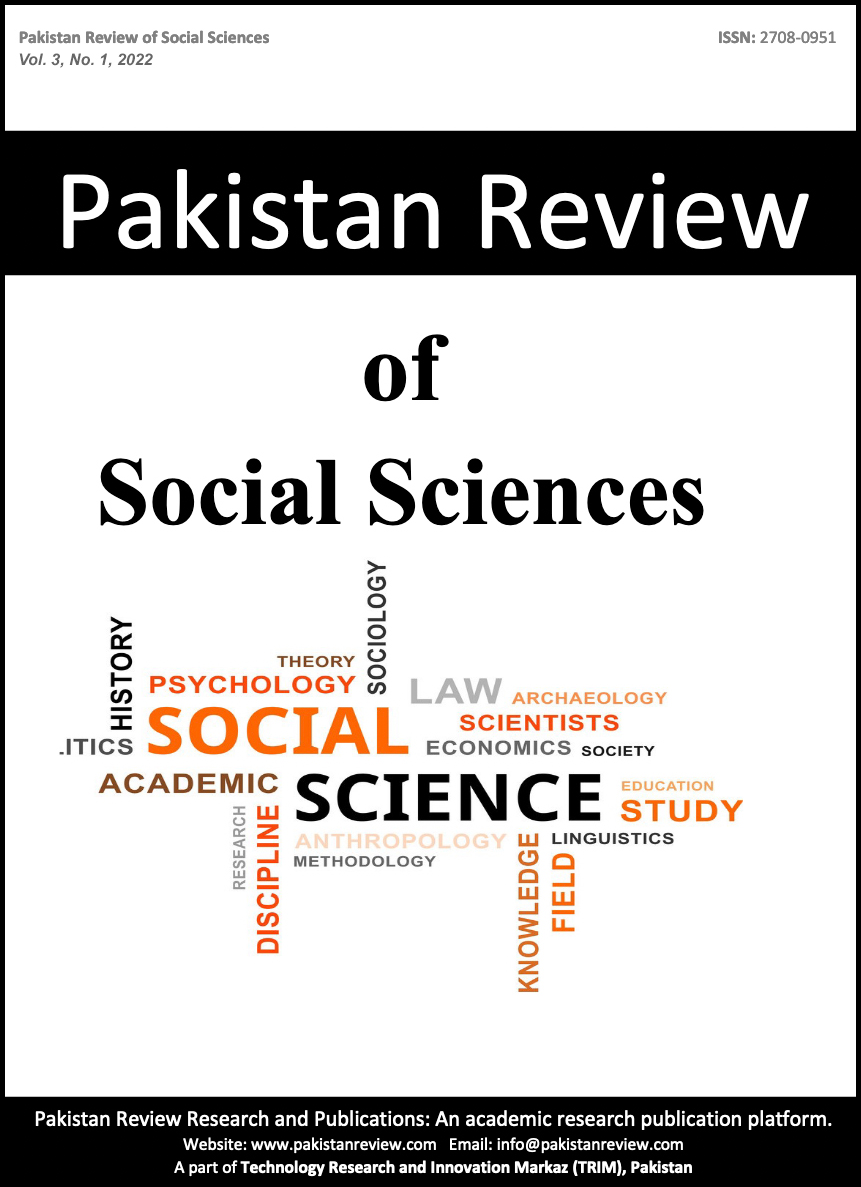A Review of History and Implementation of Working Women Rights in Pakistan: A Perspective of Employment Laws
Abstract
In contemporary world, the phenomena of gender inclusivity and diversity has encouraged many women to stay determined against the so-called glass ceiling, paving ways for women to avoid inequality pertaining to the workplace. To address the said phenomena, the present review sought to review and analyze the working women rights and harassment at work place through studying the existing scholarly work produced in the last decade related to the said areas. Suggestions indicated that Pakistan is still facing gender inequality in terms of women unequal rights in workplace. The major hinderances as stated in the literature being cultural and social factors, gender stereotypes and gender biasness. To this end, the present review proposed that gender-sensitive training programs need to be introduced to tackle gender inequalities via tailoring and transforming rigid gender-based social and cultural constructs. Further, awareness to Women rights should be provided to working women with facilitation to gain familiarity with legislative laws.
Keywords: working women, women rights, gender inequality, harassment at workplace, legislative laws.
Downloads
Published
Issue
Section
License
Copyright (c) 2023 Samreen Fazal

This work is licensed under a Creative Commons Attribution 4.0 International License.
Submission declaration
Authors retain the copyright to their work and grant the Pakistan Review of Social Sciences (PRSS) the right of first publication under a Creative Commons Attribution 4.0 International (CC BY 4.0) license. This license allows others to share, adapt, and reuse the work for any purpose, including commercial use, as long as appropriate credit is given to the original authors and the journal.
By submitting a manuscript, authors confirm that the work has not been published previously (except as an abstract, lecture, or academic thesis), is not under review elsewhere, and has been approved by all authors and relevant authorities. Once accepted, the article will be openly accessible under the CC BY 4.0 license, ensuring wide dissemination and reuse with proper attribution.






